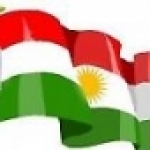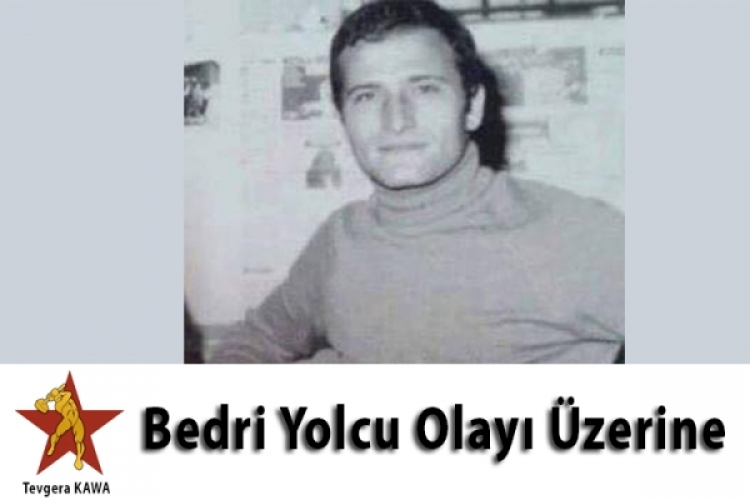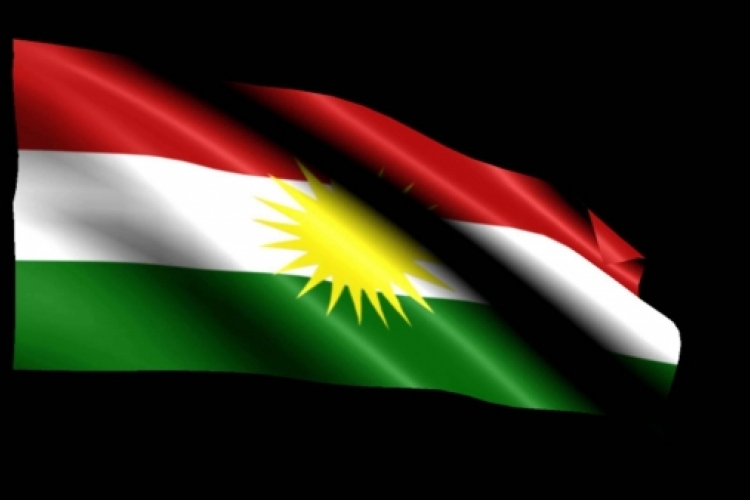Kerkük ve 140. Madde'ye Dair, Baskan Barzani ile Amerikali Diplo
[b]Mesûd Barzanî[/b]: Irak üç federal bölgeye bölünmeli, 140. Madde uygulanmalı
[b]Amerikali Diplomat[/b]: Bağdat'la anlaşmadan yapılacak bir referendum ’kriz tarife'sine dönüşür.
Güney Kürdistan Başkanı NY Times'a şunları söyledi: Irak'ın istikrarı için sadece bir umut kaldı, federal bölgelere bölmek, tercihen üç bölgeye: Kuzey'de Kürdler, Sünni Araplar orta ve Batı kısımda, Şiiler de Güney'de. O zaman Bağdat da “federal başkent“ olur, temel hükümet fonksiyonlarını yerine getirir. Başkan Barzanı güçlü birleşik bir Irak'ı ise "kuş hayal ve istekleri"ne benzetti.
Başkan Barzani, muhtemel koalisyon ortaklarından Kerkük de dahil üzerinde anlaşılmamış iç sınırlar ve petrol gelirleri gibi konularda doğrudan taahhütler istemek konusunda kararlı olduklarını söyledi ve "Eski şekilde işleyen bir hükümete katılmamız veya destek vermemiz mümkün değildir," diye ekleyerek, bizzat kendisinin toprak ve peşmerge güçleri için ek ödenek istemlerini gerçekleştirmek ve Bağdat'la görüş ayrılıklarını çözmek için sıkı müzakerelere katıldığını söyledi.
Başkan Barzanı 140. Madde konusunda da uyarıda bulunarak, "140. Madde'nin uygulanmaması Anayasa'nın ve Irak'ın kendisinin çözülmesine yol açar," dedi. Başkan Barzani bu şekilde Kürdlerin yeni başbakandan önemli isteklerinden birinin 140. Madde'nin uygulanması olduğunu belirterek, ayrıca geçen Kasım ayında Irak seçim kanununa muhalefetlerini sona erdirme nedenlerinden birine dikkat çekti ve ABD başkanı Obama'nın 140. Madde'nin uygulanması için her türlü çabayı göstereceklerine dair verdiği sözü hatırlattı. Obama'nın bu sözü önce telefonla verdiğini, daha sonra da yüzyüze görüşme yaptıklarında da tekrarladığını söyledi.
Fakat NY Times Bağdat'ta yüksek düzeyde bir Amerikan diplomatının şöyle dediğini yazmaktadır, “Her ne kadar sayın Obama 140. Madde dahil Irak anayasası çeçevesinde destek sunduysa da, Amerikan hükümeti her düzeyde çok açık olarak, anlaşmazlık konusu bölgelerle ilgili Bağdat'la müzakere edilmiş bir anlaşma olmadan, 'hep ya da hiç' şeklindeki bir referandumda sürekli ısrarlarının bir "kriz tarifesi" olacağını belirtmiştir.
[url=http://sites.google.com/a/baranrizgar.co.cc/azadikurdistan/aktuel]Yazinin Devami[/url]
[center][url=http://sites.google.com/a/baranrizgar.co.cc/azadiya-kurdistane/]Helwesta Netewî[/url][/center]
Massoud Barzani: The only hope left for stability in Iraq is in
[b]Massoud Barzani[/b]: The only hope left for stability in Iraq is in dividing it into federations, preferably three: Kurds in the north, Sunni Arabs in the middle and west and Shiites in the south. Pesident Barzani told NY Times that Baghdad would become a “federal capital“ fulfilling basic government functions and likened talk of a strongly unified Iraq to “bird dreams and wishes.“...
[url=http://sites.google.com/a/baranrizgar.co.cc/azadikurdistan/aktuel][color=#FF0000]»more[/color][/url]
[center][url=http://sites.google.com/a/baranrizgar.co.cc/azadiya-kurdistane/]Helwesta Netewî[/url][/center]
NYT orjinali
By SAM DAGHER
Published: May 2, 2010
SIGN IN TO RECOMMEND
TWITTER
E-MAIL
SEND TO PHONE
PRINT
REPRINTS
SHARE
ERBIL, Iraq — Emboldened by his party's electoral success, the president of Iraq's semiautonomous Kurdistan region is intensifying his demands for greater sovereignty and control of oil, adding more complexity to an already tumultuous government formation period.
Notes from Afghanistan, Pakistan, Iraq and other areas of conflict in the post-9/11 era.
Go to the Blog »
Related
Bombs Hit School Buses in North Iraq (May 3, 2010)
The New York Times
There are fears that Kurdistan may eventually try to secede.
As the deadlock in Baghdad has deepened with the recent disqualification of some winning Sunni candidates and the coming vote recount in the capital, important bloc leaders like the Kurdish president, Massoud Barzani, have been heavily courted for support in forming coalitions.
But no one has been more openly aggressive in the jockeying for position than Mr. Barzani, and he is being closely watched because the issues he seeks to influence all have stark ramifications for Iraq's stability. In particular, his demands for a federalist approach to governing Iraq — a weakened national government and stronger regional control — have revived fears that his Iraqi Kurdistan region may eventually try to secede.
During a recent interview, Mr. Barzani said he was determined to extract upfront commitments from any prospective coalition partners in Baghdad on potentially explosive issues like the settlement of disputed internal borders, including those of the oil-rich northern city of Kirkuk, and the sharing of oil revenues.
“It is impossible for us to participate in or back a government that will operate in the same old way,“ said Mr. Barzani, speaking at his mountaintop palace overlooking the regional Kurdish capital, Erbil.
The March 7 elections solidified Mr. Barzani's position as the dominant voice in Kurdish politics, with his Kurdistan Democratic Party winning 29 of the Kurds' 57 seats in Parliament, and with three other seats allocated to Iraq's minorities going to candidates supported by his party.
In the weeks since, Mr. Barzani and his party have worked, with apparent success, to persuade all the Kurdish factions to go to Baghdad as a bloc unified under his banner, despite their sharp differences.
That is in part because the other main Kurdish party, led by Jalal Talabani — a Kurd who occupies the largely ceremonial post of Iraq's president — came in a distant second. Mr. Talabani had already been losing ground, faring badly in local elections last summer as a splinter movement, known as Gorran, meaning change in Kurdish, made headway by calling for an end to the entrenched system of patronage and corruption fostered under the two governing parties.
Evidence that the Kurds are moving forward together came last week when the Kurdistan regional Parliament quietly created a new committee tasked with reclaiming “historic Kurdish land“ — meaning contested areas like Kirkuk and hot spots in Nineveh Province — under the regional government's de facto control but nominally still attached to the central government. And the Kurds are pushing for more leverage by holding out for partial vote recounts in those areas to minimize further the influence of Sunni Arabs and other groups there.
In the interview, Mr. Barzani stressed that he believed that the only hope left for stability in Iraq was in dividing it into federations, preferably three: Kurds in the north, Sunni Arabs in the middle and west and Shiites in the south. He said Baghdad would become a “federal capital“ fulfilling basic government functions. He likened talk of a strongly unified Iraq to “bird dreams and wishes.“
He said he had been personally involved in drafting a tough negotiation agenda to secure territorial claims and extra money for the region's armed forces, the pesh merga, and resolve outstanding differences with Baghdad over how to allot oil revenues.
One of the crucial Kurdish demands will be a pledge from the next prime minister to carry out Article 140 of the Constitution, a hotly contested passage that outlines the steps toward a plebiscite on the fate of the disputed northern territories, including Kirkuk.
“If Article 140 is not implemented, then this will mean the demise of the Constitution and Iraq itself,“ Mr. Barzani warned.
Mr. Barzani's strengthened hand in negotiations does not ensure a complete Kurdish victory on those issues, of course. And American officials have made a point of urging the Kurds to back down from some of their more hard-line demands.
The back and forth over Article 140 is one example of how the Americans have sought to soften the Kurds' demands while still showing support for their relative autonomy within a larger Iraq.
Mr. Barzani noted that one of the main reason Kurds dropped their opposition to the election law in November was a promise by President Obama that the United States would “push hard“ to put in effect Article 140. He said Mr. Obama first made the promise in a telephone call at the time and then reiterated it at a meeting in the Oval Office in January.
But a senior American diplomat in Baghdad said that while Mr. Obama offered broad support for Iraq's Constitution, including Article 140, the American government at all levels made it “very clear“ to Kurdish leaders that their continued insistence on an all-or-nothing plebiscite on the disputed areas without a negotiated agreement with Baghdad was a “recipe for a crisis.“
“The Balkans, when they tried an up or down referendum, it led to bloodshed,“ warned the diplomat, speaking on the condition of anonymity under diplomatic ground rules.
He said the United States and the United Nations were still trying to persuade Kurds to back away from their ultimatum on Article 140 by highlighting the economic and financial benefits of greater integration with Iraq.
Another Western diplomat hoped the defiant Kurdish position could be balanced by the fact that Sunni Arab and Turkmen nationalists in Kirkuk and Nineveh did surprisingly well in the elections, and so far they remain adamant about opposing Article 140.
Asos Hardi, editor in chief of Awene, an independent Kurdish newspaper, said that if Kurdish leaders had been serious about Article 140 and not just concerned with preserving their powers, they would have withdrawn from the government of Prime Minister Nuri Kamal al-Maliki when he turned hostile toward Kurdish demands almost two years ago.
Mr. Hardi said the only hope left for Kurds was to exploit the divisions among Iraq's other communities, namely the Shiites.
“There are lots of opportunities for Kurds if they play it right,“ he said.
Namo Abdulla contributed reporting.








Li Ser Kerkûkê û Xala 140an, Gotinên Serok Barzani û Dîplomatekî